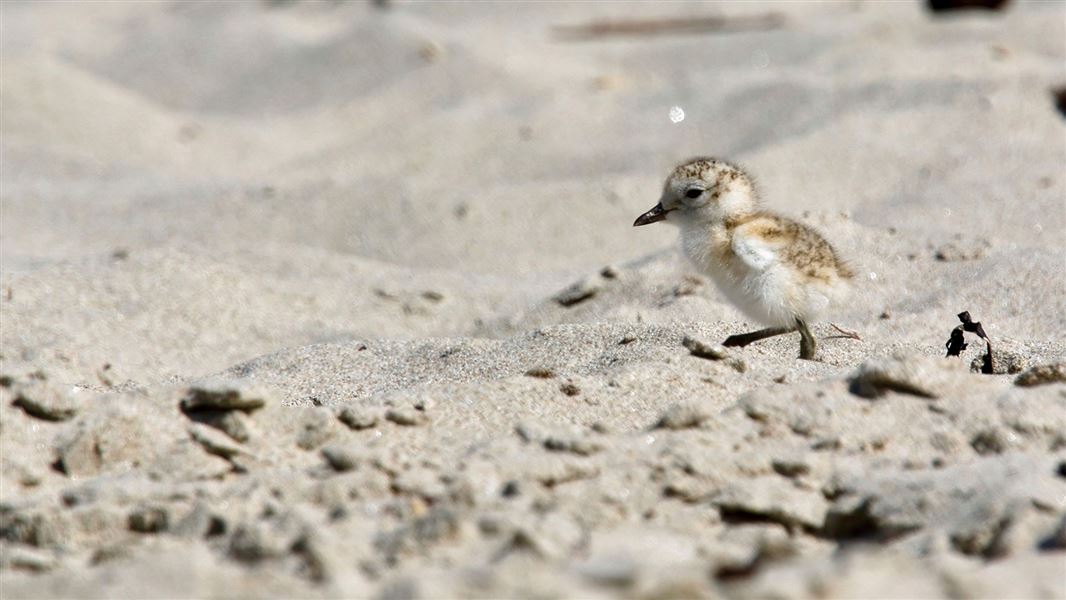Date: 30 January 2024
DOC Supervisor Marc Camburn says tūturiwhatu nest on beaches, and historically would have a much larger safe area for breeding.
“We’ve fenced off these small areas to give them a chance, away from some of the impacts of humans,” says Marc. “To have that ignored is distressing.
“With so many places available for people to access and enjoy beaches, we’re urging people to give these birds a break.”
Classified as ‘at risk – recovering’, tūturiwhatu are found only in Aotearoa New Zealand. DOC clearly marks their breeding areas as their nesting behaviours make them difficult to see, and driving through poses serious risk.
“They’re what we call a ‘cryptic’ species, which means they’re pretty difficult to spot,” says Marc. “So even though it may look empty, there’s a reason for the signs.
“We know there were tūturiwhatu nesting in this particular location, and we counted three chicks late last year. Unfortunately, only one of the chicks appears to still be alive.
“With less than 3000 individuals, every chick matters.”
Whakatāne District Council Manager Open Spaces, Ian Molony, says Council’s Beaches Bylaw 2018 does not permit any vehicle on any beach in the district, unless using authorised accessways and solely for the purpose of launching or retrieving any vessel. In addition, quad bikes are permitted in certain areas for the purposes of recreational fishing only.
“The bylaw aims to create a balance between recreational activities and the need to protect fragile shorebird habitats," says Ian. Adding, “While quad bikes are permitted in some areas, they must not enter dotterel breeding sites, which are clearly signposted.”
Tūturuwhatu are absolutely protected under the Wildlife Act 1953. Anyone who disturbs dotterels and/or their nests can be convicted with penalties ranging from fines up to $100,000 and/or up to two years imprisonment.
People who observe vehicles in protected nesting areas can report the incident to Council on
- 07 306 0500
- or to DOC on 0800 DOC HOT (0800 362 468).
If sufficient evidence is available, charges will be laid against the individuals responsible.
Background information
- Threats to tūturiwhatu include coastal development, introduced predators, and disturbance during breeding seasons.
- The Northern New Zealand dotterel nests in open sites, typically low-lying sand, gravel banks or sandbars close to beaches and lagoons.
- Nests and chicks are camouflaged and easy to overlook.
- On the beach, nests are easily destroyed by careless feet, dogs and off-road vehicles.
- When adults are disturbed while incubating and leave the nest, the eggs are at risk of overheating.
- When young chicks are disturbed, they can die from exhaustion as they cannot eat in time, or get to their feeding grounds at the water’s edge.
When visiting dotterel areas:
- Stay out of roped-off areas and follow the signs.
- Keep dogs and vehicles off beaches and sandspits.
- If you see a NZ dotterel feigning injury (it may ‘drag’ a wing as if it is broken), it has a nest or chicks nearby. Move away slowly and carefully.
Contact
For media enquiries contact:
Email: media@doc.govt.nz
